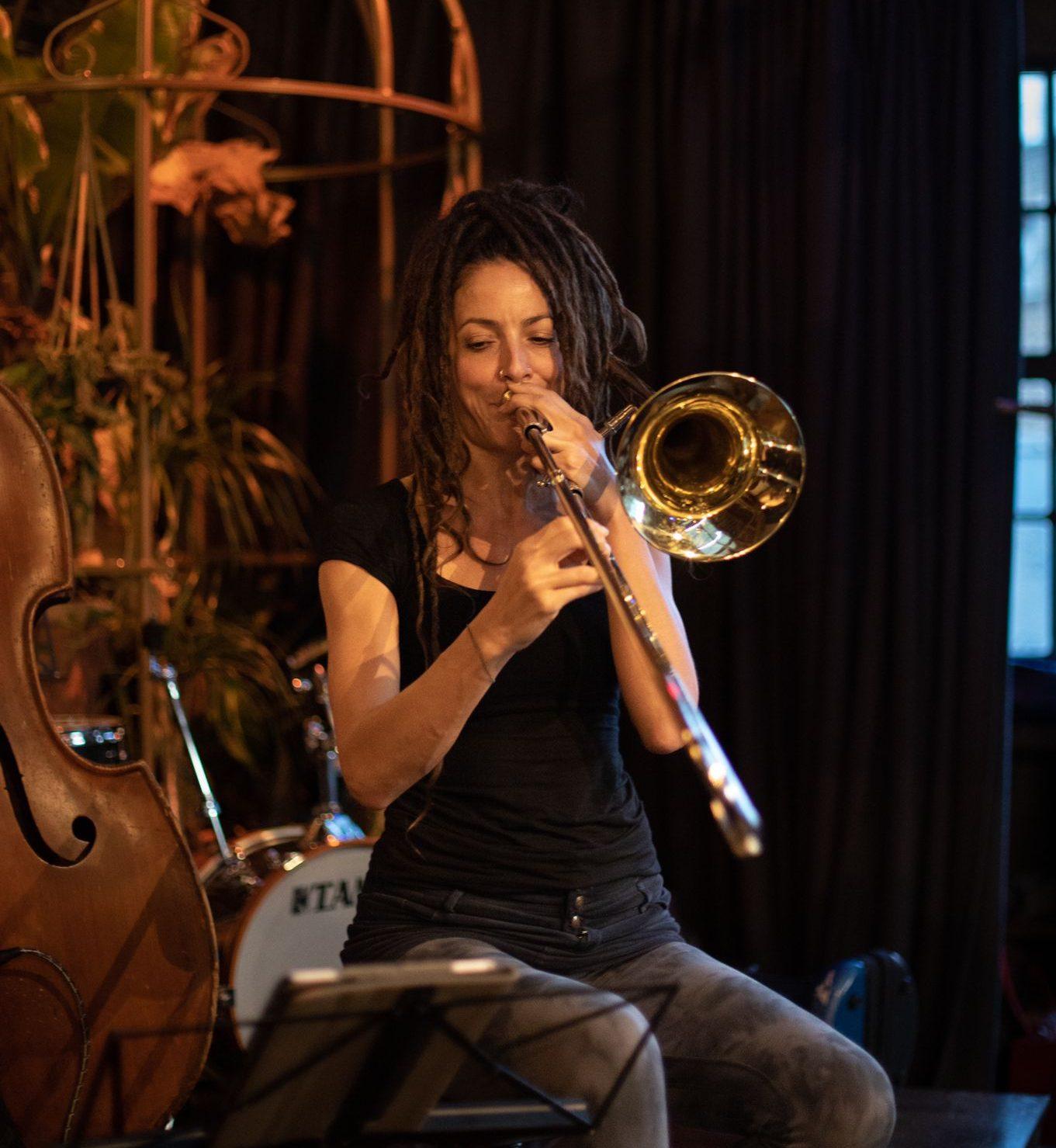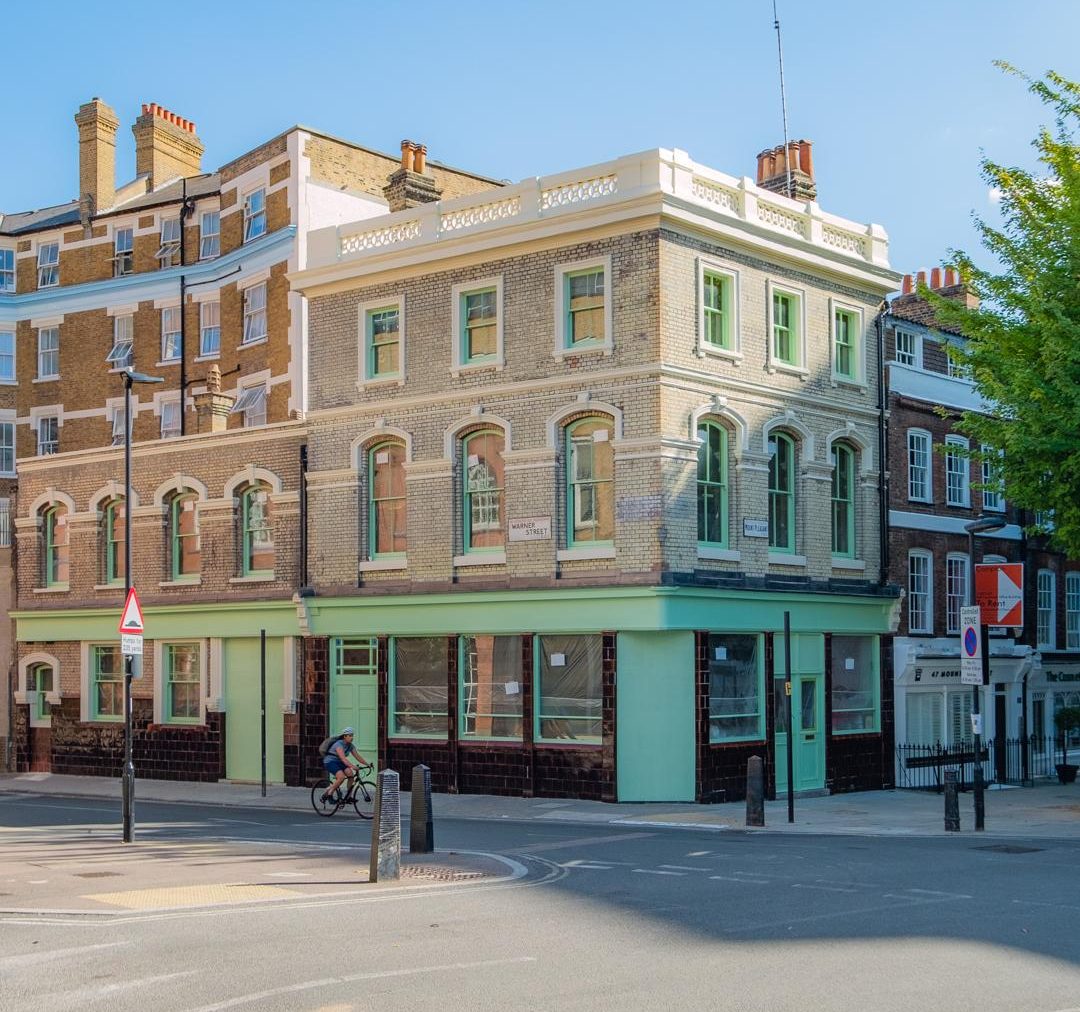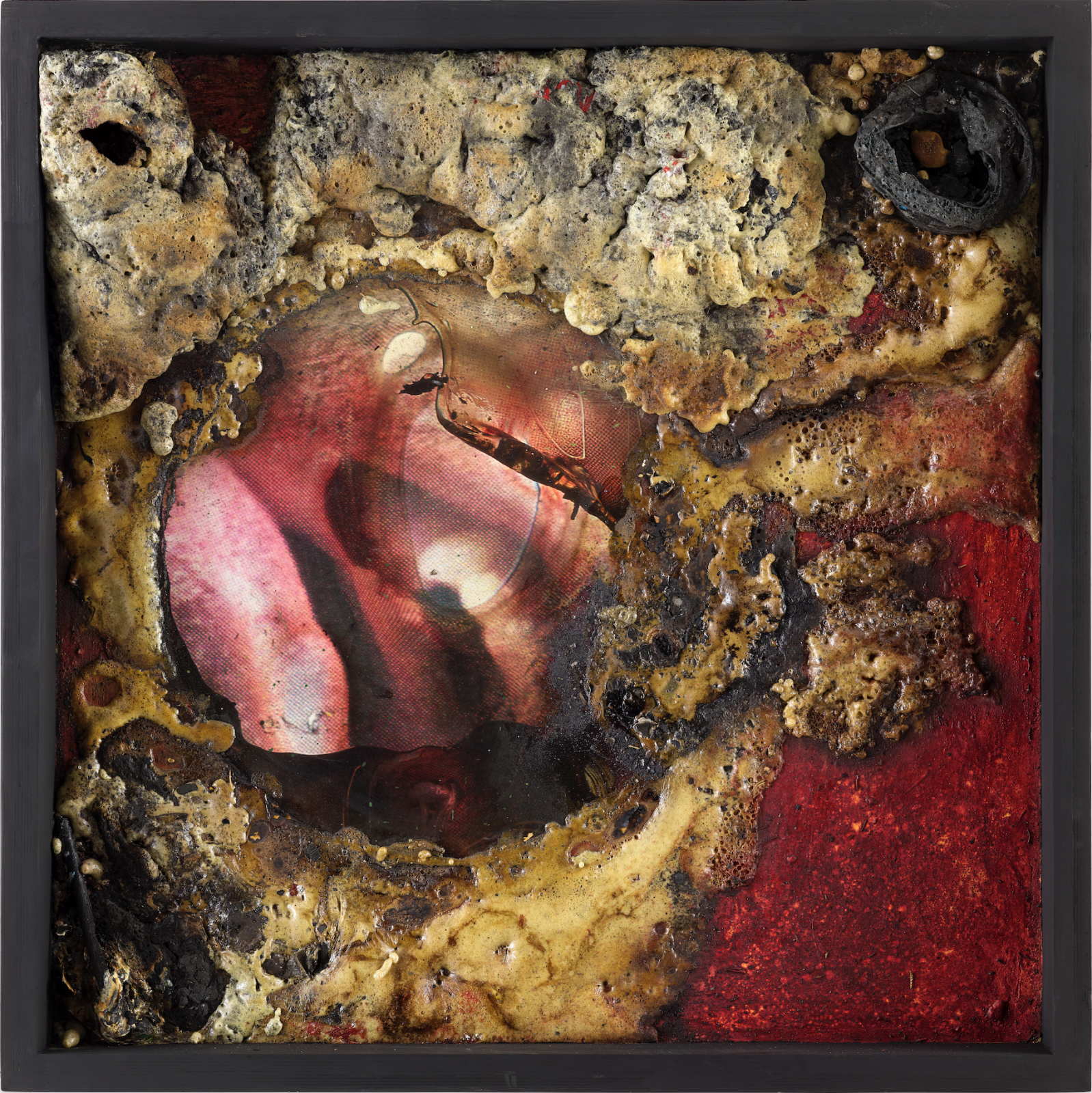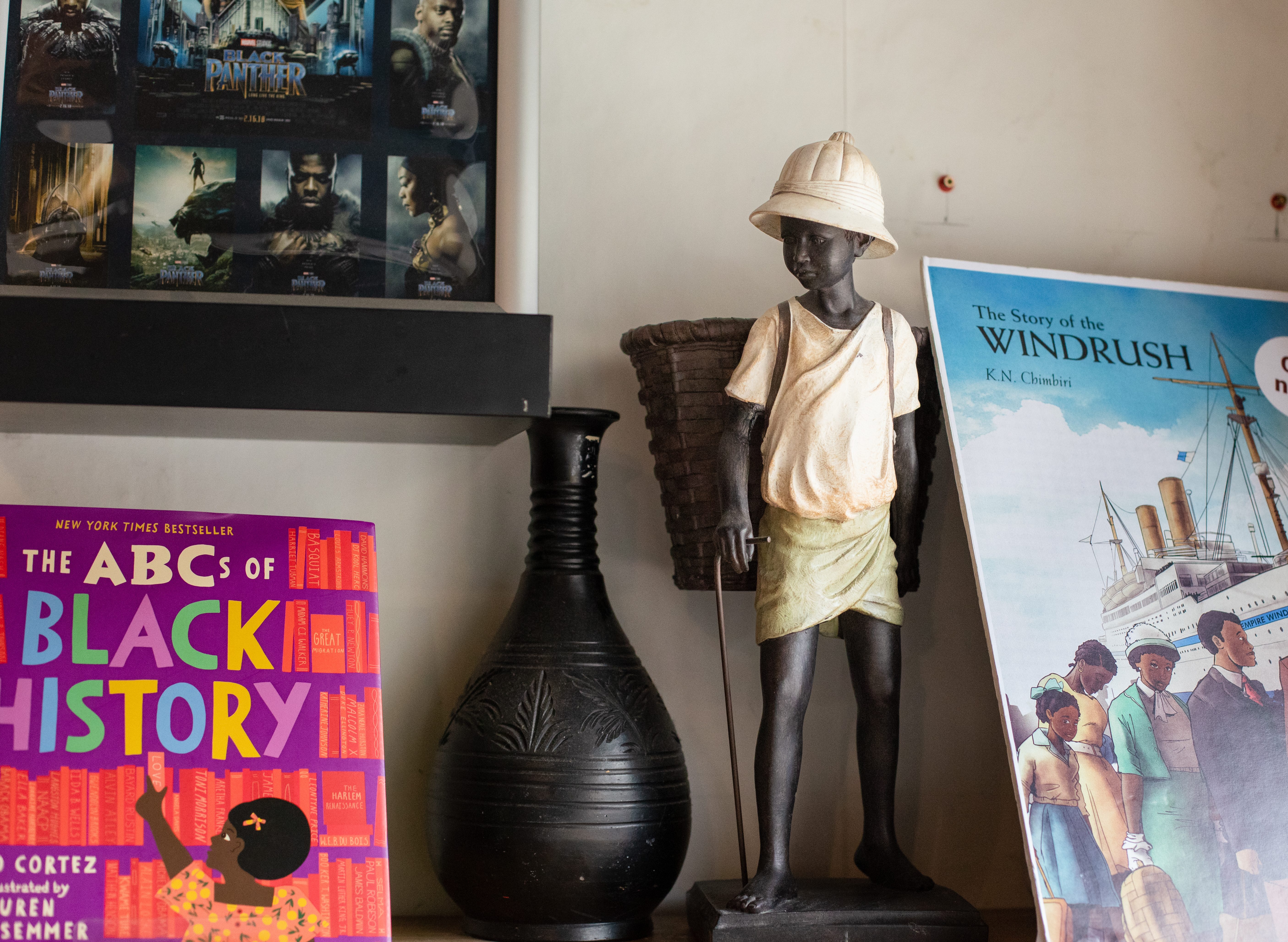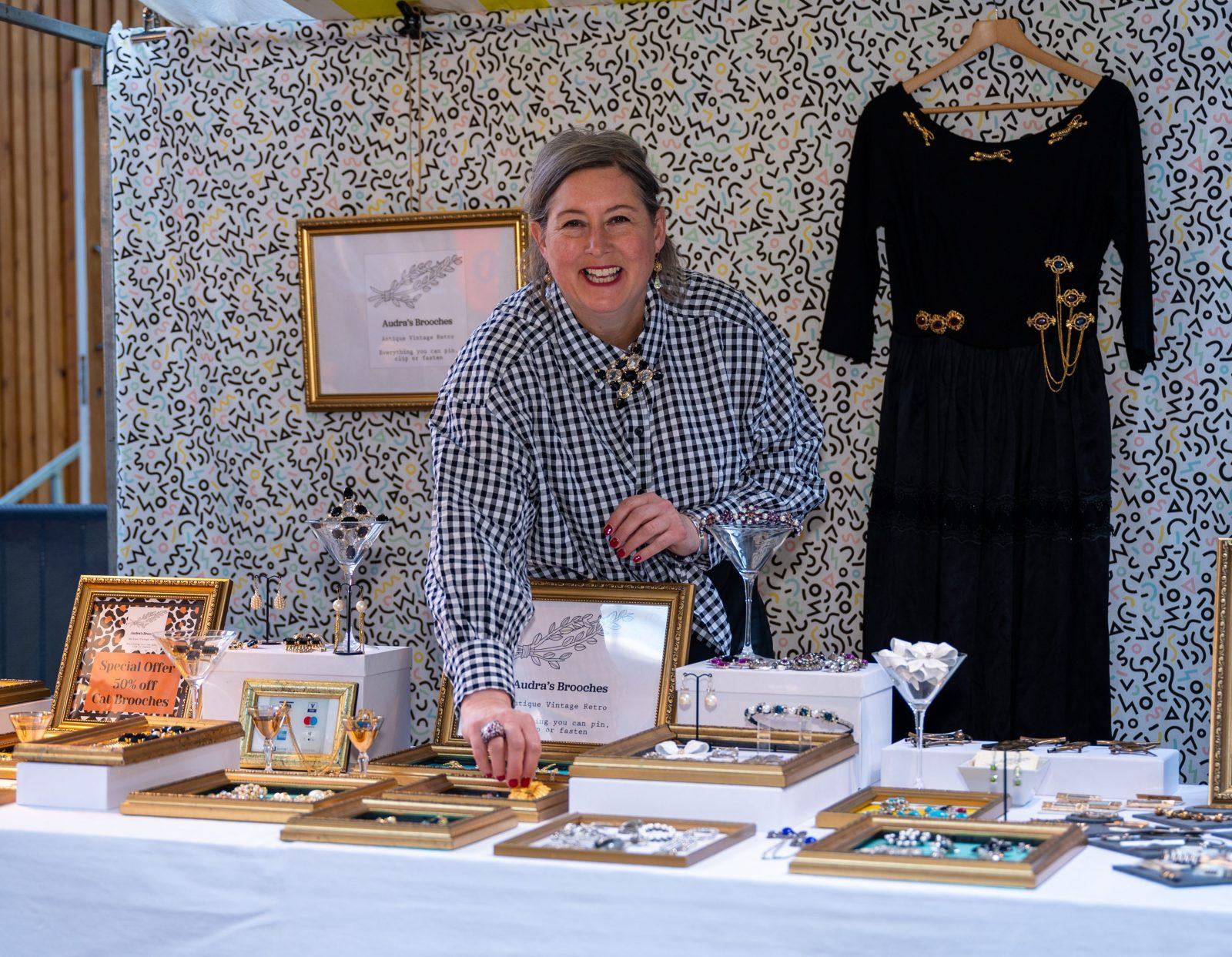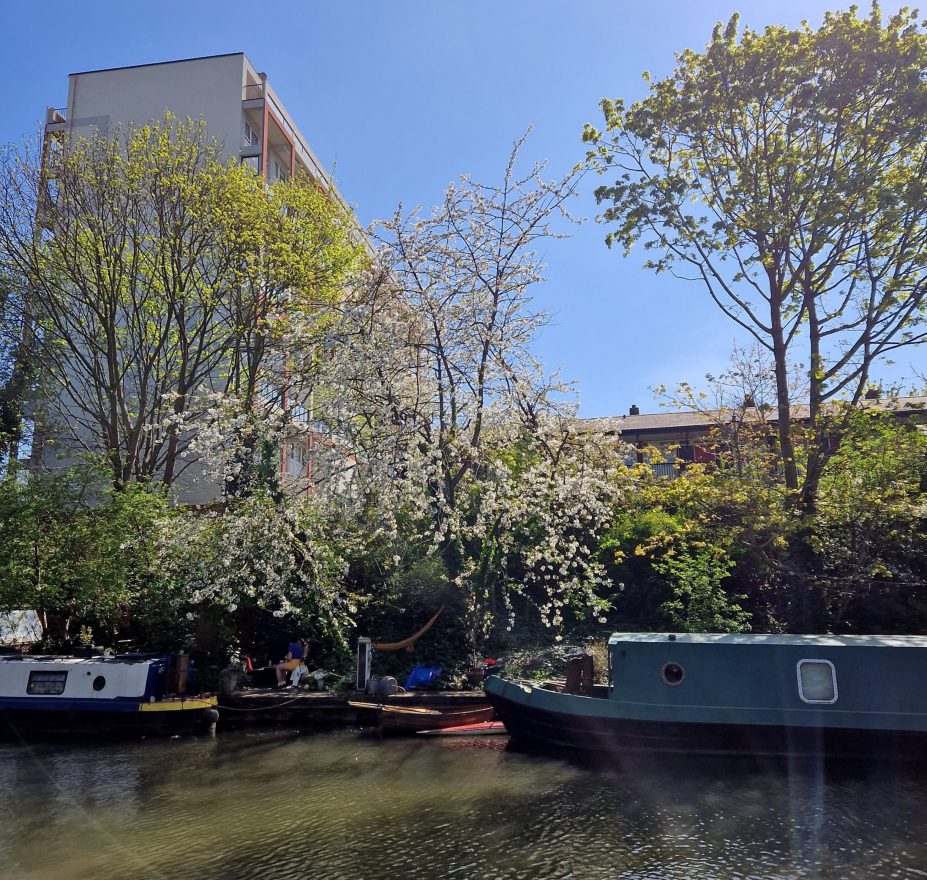This piece was contributed by Michael Losavio, an avid enthusiast for music and performative arts, often visiting local gigs in and around Islington. This time, we share the profile of a jazz musician who frequents our local Jamboree with her band. The story of Laura’s effort to combine the practice of psychology, musical talent and her love for helping those most in need leaves one feeling both inspired and empowered.
Note from the editor
Bordering Islington and the lively King’s Cross, the lonesome St Chad’s Place is hidden between a pool bar and a hotel. The barb-wired wall abutting this tiny street may dishearten one from wandering in. Yet the courageous voyager will be rewarded generously. Right at the end of St Chad’s Pl, one discovers Jamboree, the “home-made den of world music” and abode to the venturous European bohemia. On that particular Sunday afternoon, one would have found themself enveloped by a hurricane of rhythmic Jazz and passionate dance. And at its epicentre, one would have located Laura, the flamboyant trombonist of the Prospective Collective, supercharging the environment by masterfully handling her peculiar-shaped instrument.
Meet Laura Impallomeni
“If you boil a stone long enough, it will soften” is Laura’s life motto, who, despite starting to play the trombone at 30, has already become a prominent figure in Jazz. Laura runs a quintet and plays for “The Barnacles” and “The Voodoo Love Orchestra”. What is more, as musical director of an 11-piece Afro-Jazz band called “Yamaya”, she made it to the top 8 entries (out of 5,600) at the Glastonbury emerging talent competition.
Before music became her world, Laura pursued a degree in psychology. After graduating, she applied her knowledge in various roles in the healthcare sector, but something did not feel quite right. Soon after, Laura was struck by lightning (quite literally!) whilst on a life-changing trip to India. This event catapulted her forward into the realm of music and a whole new chapter of her life. She started the guitar at 25, moving to Andalucía to learn from some of the best flamenco masters. The trombone, however, came as a birthday present from a friend and ended up changing the trajectory of Laura’s musical career.
I wanted to learn [another instrument] but didn’t know which one exactly: the trumpet, trombone, sax. And then I was like, I’m quite “trombony”: I do a lot of yoga, I’m very tall and long. The trombone is stretchy, and I’m a stretchy human being.
laura about her journey into jazz
Laura’s first few steps with the trombone are a classic example of being in the right place at the right time. While many fought for the lead guitar spot, trombonists became a rare find in Andalucía. The niche instrument opened many doors and created lots of practice opportunities for Laura. But the main opportunity it presented to her was the introduction to the world of Jazz, which suited Laura’s personality much better than the more traditional interpretations called for in flamenco. Since discovering Jazz, Laura set her mind upon it firmly, returning to London to commit to a master’s at Trinity Laban Conservatoire.
A female in Jazz
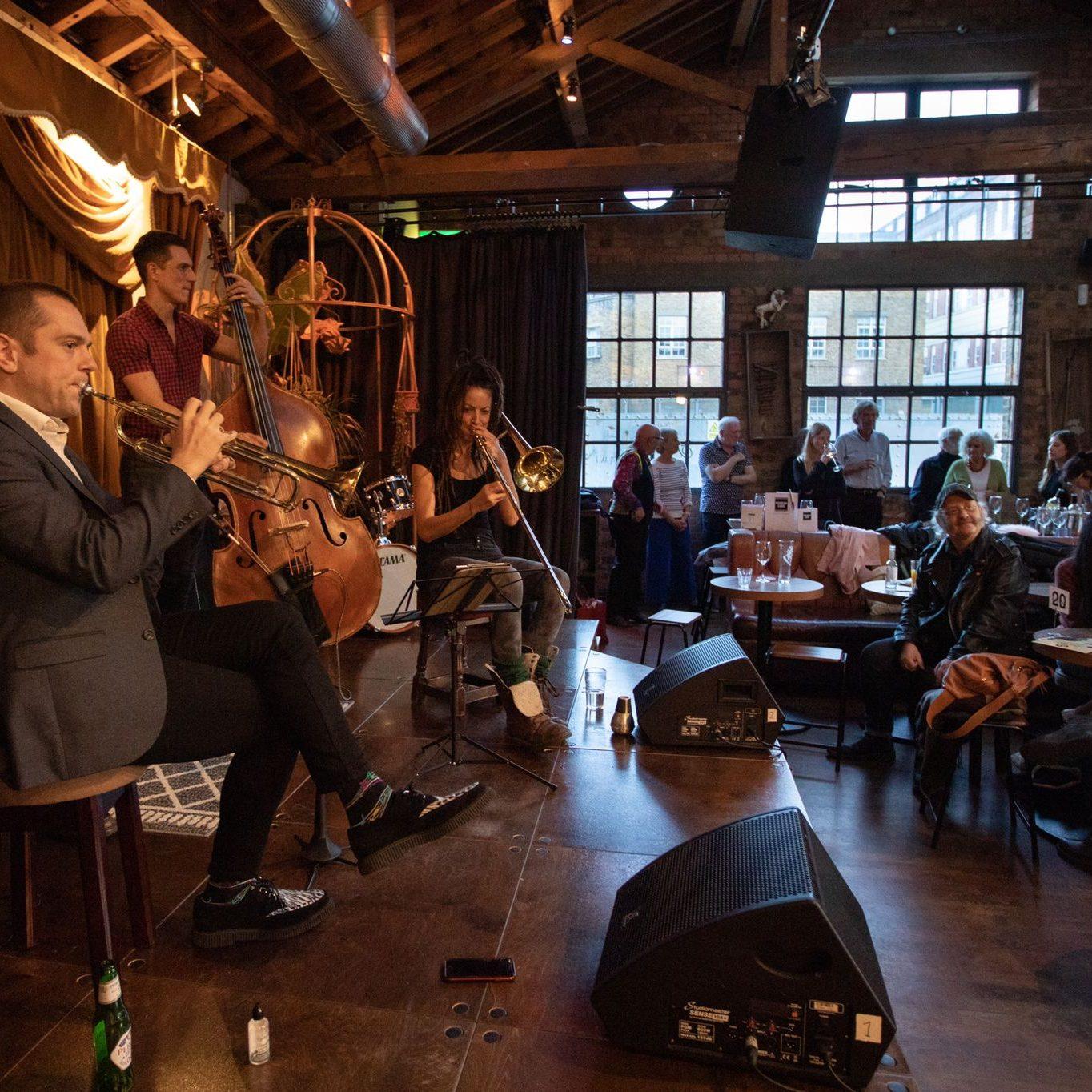
“How would you describe jazz to a person that has never heard it before?” I asked Laura during our conversation. She answered by saying that it’s a form of music built around improvisation backed by a set rhythm and born from the blues. Then, she added: “It is a black music born from slavery, colonised by white people, packaged and sold to be played in conservatoires”. Far from sounding cynical, Laura’s response suggested a deep feeling of concern for the inclusivity of the genre.
From the listener’s perspective, the jazz world has expanded significantly from its early days in the ’20s, offering a wide variety of styles to relate to swing, bebop, fusion, and contemporary, to name just a few. However, from an artist’s perspective, it is still a very exclusive form of music. During her Master’s at Trinity Laban, Laura would often be the only female in bands of up to twenty people. Laura explained: “jazz has this Darwinian aspect to it, where the solo serves as an evolutionary opportunity to demonstrate
your improvisational ‘tusks’. At a primal level, this aspect of Jazz is quite archetypically male, which can be quite deterring for women”
The urge to resist discrimination inspired some of Laura’s recent work. In the Summer of 2022, Laura played at the ‘Maxine Gordon – Sophisticated Giants’ event, performing the repertoire of Melba Liston. Melba was one of the first females to challenge the stark gender imbalance in the jazz scene of the 50s. “Melba has been an absolute icon for me,” Laura states, describing the challenges that a black woman had to overcome at the time, such as, for example, going on tour with renowned musicians but not having her own room or not being allowed to use the toilets in the venue.
Impact through music
Drawing on the film ‘Whiplash’ for analogy, Laura recalls the lack of reflection about mental health in the musical education environment. Laura finds this paradoxical since music is actually a potent instrument for solving mental health problems. Living true to her convictions, as part of a charity called ‘Play for Progress’, she endeavours to help young refugees express their emotions through music.
In addition to the constraint of language, communicating your emotional state when you’re 16 is a challenge when you don’t necessarily have the self-awareness to articulate it,” Laura explains, “and music serves as a metaphor: instead of using words, you can express yourself by hitting a drum or playing a really loud note on the trombone.
Laura’s method involves making the process playful for her students and instilling the mentality that making mistakes is important for progress. She has employed similar methods when working with charities to help the elderly and people with degenerative diseases. Engaging with people through music in this way is symbiotically beneficial to both herself and the person she is caring for.
A link between Psychology and Music
The precursor for Laura’s creativity is listening to music and setting deadlines. “I work well under pressure and put markers in my life all the time”. When asked to compose in the conservatoire, Laura would feel overwhelmed by the challenge, as she couldn’t play the piano, read music or use notation programs to create her compositions. Yet setting limitations, picking existing harmonies and composing tunes on top had allowed her to succeed in her undertaking.
The pandemic, however, caused the loss of all extrinsic motivators. At the end of Laura’s Master’s, COVID impeded completing her personal project by cutting off access to recording sessions with other people. Nevertheless, Laura turned the situation around by using this forced loss of access to undertake music psychology research and look into the pandemic’s effect on musicians’ motivation to practice. She applied her original degree in psychology to examine the impact the lack of access to rehearsals, performances, recording sessions, and live audiences had on fellow students and professional musicians.
“I think the pandemic was a massive lesson in embracing discomfort and uncertainty, underpinning that with a sense of self-belief. It’s worked out for the best for me as a musician”.
The challenges related to this final project inspired Laura to pursue a psychology doctorate to nourish both her academic and creative self. Her research focuses on racism within applied psychologies, specifically looking at white fragility and white privilege. Indeed, Laura finds parallels between her two passions: “music is a language of emotions; it describes the inexplicable through metaphors, whereas psychology applies quantitative and qualitative methods to achieve a similar goal”.
However, she clearly differentiates between the two in her life. She emphasises the importance of choice and the ability to take ownership of one’s path. “I love music, but having all my eggs in one basket isn’t that great for my relationship with it. I don’t want to feel anxious about my relationship with my musical practices; I want to be able to play on my own terms and have the space for other things that also give me meaning and wellbeing”.
What made my conversation with Laura so special was her authenticity. Her urgent calling out of the stark inequalities and mental health issues surrounding the world of music to this day, and, on the other hand, the upbeat emotion with which she depicted her love for music as a powerful tool for uplifting those going through severe economic and physical distress. Laura’s empowering determination to battle with self-limiting thoughts is a true inspiration, as is her commitment to her vocation.
Look out for Laura’s next performances at The Jamboree Venue, 6 St Chad’s Pl, WC1X 9HH.
You can also check out Laura’s Instagram here and the band’s page here.

